Whether it's conducting archival research, presenting at conferences or going into the field, the faculty members have remained busy this summer. Below is a summary of what some of them have been up to.
Cognitive Science
David Noelle
 Professor Noelle was one of about 45 scholars from around the world who have been invited to participate in a five day working seminar on “Resource-bounded Problem Solving” in Schloss Dagstuhl, Germany. This working seminar brings together researchers in computer science, artificial intelligence, psychology and cognitive neuroscience in order to understand how the human brain supports problem solving. In the words of one of the seminar organizers, Noelle has been invited because he is "one of the rare people with expertise in all of these areas.”
Professor Noelle was one of about 45 scholars from around the world who have been invited to participate in a five day working seminar on “Resource-bounded Problem Solving” in Schloss Dagstuhl, Germany. This working seminar brings together researchers in computer science, artificial intelligence, psychology and cognitive neuroscience in order to understand how the human brain supports problem solving. In the words of one of the seminar organizers, Noelle has been invited because he is "one of the rare people with expertise in all of these areas.”
Humanities and World Cultures
ShiPu Wang
Professor Wang has been awarded a Senior Fellowship, funded by the Terra Foundation for American Art at the Smithsonian American Art Museum. The Terra Foundation for American Art is dedicated to fostering exploration, understanding, and enjoyment of the visual arts of the United States for national and international audiences. Recognizing the importance of experiencing original works of art, the foundation provides opportunities for interaction and study, beginning with the presentation and growth of its own art collection in Chicago. To further cross-cultural dialogue on American art, the foundation supports and collaborates on innovative exhibitions, research, and educational programs. Implicit in such activities is the belief that art has the potential both to distinguish cultures and to unite them.
Susan Amussen
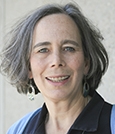 This summer, Professor Amussen will be conducting archival work in the United Kingdom. Amussen is a social and cultural historian of Britain in the early modern period (roughly 1500 to 1750). She is particularly interested in the various hierarchies and structures of power that organize society. She's also director of the UC Merced Center for the Humanities.
This summer, Professor Amussen will be conducting archival work in the United Kingdom. Amussen is a social and cultural historian of Britain in the early modern period (roughly 1500 to 1750). She is particularly interested in the various hierarchies and structures of power that organize society. She's also director of the UC Merced Center for the Humanities.
Katherine Brokaw
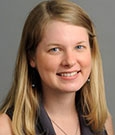 In May, Professor Brokaw directed and co-produced the children’s opera, “The Sky is Falling and I’m Not Even Kidding.” The opera included UC Merced students as well as community artists, and brought 3,000 schoolchildren to UC Merced to experience the performing arts. “The Sky is Falling and I’m Not Even Kidding,” is a fun, fast-paced romp that is enjoyed by kids and adults of all ages. The antics of Henny Penny and friends are set to the glorious tunes of Mozart, Puccini, Gilbert and Sullivan, and Bizet.
In May, Professor Brokaw directed and co-produced the children’s opera, “The Sky is Falling and I’m Not Even Kidding.” The opera included UC Merced students as well as community artists, and brought 3,000 schoolchildren to UC Merced to experience the performing arts. “The Sky is Falling and I’m Not Even Kidding,” is a fun, fast-paced romp that is enjoyed by kids and adults of all ages. The antics of Henny Penny and friends are set to the glorious tunes of Mozart, Puccini, Gilbert and Sullivan, and Bizet.
Also, in May, Professor Brokaw played Olivia in the CSU, Stanislaus Shakespeare Under the Stars production of "Twelfth Night," which was seen by around 6000 people. The play is a tale of mistaken identities, bewildering desires, practical jokes and ribald revelry; all while set during the excitement of the Roaring Twenties. This production was under the direction of Chicago-based guest artist Daniel Gately.
Virginia Adan-Lifante
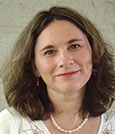 During the Spring 2014, Professor Adan-Lifante mentored an undergraduate UC Merced research assistant (Enma Suárez). Enma helped Adan-Lifante by identifying and summarizing different resources for Adan-Lifante’s research on domestic violence and humor.
During the Spring 2014, Professor Adan-Lifante mentored an undergraduate UC Merced research assistant (Enma Suárez). Enma helped Adan-Lifante by identifying and summarizing different resources for Adan-Lifante’s research on domestic violence and humor.
In April, Professor Adan-Lifante served as a discussant for one of the panels during "Art Visual Culture in History, Literature, and Society Conference.” This conference was organized by the UC Merced World Cultures Graduate Students. In May, Adan-Lifante presented her paper: "Desert Blood: La cuidad como laberinto" at the IX Congreso Internacional sobre Literatura Chicana y Estudios Latinos in Oviedo, Spain. This year, the focus for the conference was the relationship linking a city with literature and identity, this issue was addressed from a multidisciplinary perspective.
Psychology and Public Health
Eric Walle
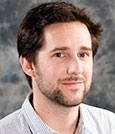 In July, Professor Walle presented two talks and two poster presentations at the International Conference on Infant Studies in Berlin, Germany. One talk and one poster have been co-authored with a UC Merced graduate student, Peter Reschke. The International Society on Infant Studies organizes a scientific conference every two years. The conference serves as a venue for the latest research findings on applied and basic aspects of infant development. Some of the substantive areas of research represented at the conference include the development of sensation, perception, cognition, emotion, language, and social behavior. The conference includes invited and investigator-initiated symposia, lectures, and poster presentations.
In July, Professor Walle presented two talks and two poster presentations at the International Conference on Infant Studies in Berlin, Germany. One talk and one poster have been co-authored with a UC Merced graduate student, Peter Reschke. The International Society on Infant Studies organizes a scientific conference every two years. The conference serves as a venue for the latest research findings on applied and basic aspects of infant development. Some of the substantive areas of research represented at the conference include the development of sensation, perception, cognition, emotion, language, and social behavior. The conference includes invited and investigator-initiated symposia, lectures, and poster presentations.
Susana Ramirez
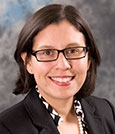 Professor Ramirez and Professor Shawn Newsam were awarded a pilot grant from the UC Berkeley Development Impact Lab. The School of Social Sciences, Humanities and Arts and School of Engineering will be collaborating to conduct Community-Based Pollution Informatics research. Throughout the world, communities disproportionately suffering from threats related to air pollution also lack the resources and access to innovations critical to addressing these threats. This project investigates how community‐based methods (i.e., strategically placed cameras and crowdsourcing) can provide comprehensive, cost‐effective spatial estimates of particulate pollution; as well as improve community awareness and facilitate action.
Professor Ramirez and Professor Shawn Newsam were awarded a pilot grant from the UC Berkeley Development Impact Lab. The School of Social Sciences, Humanities and Arts and School of Engineering will be collaborating to conduct Community-Based Pollution Informatics research. Throughout the world, communities disproportionately suffering from threats related to air pollution also lack the resources and access to innovations critical to addressing these threats. This project investigates how community‐based methods (i.e., strategically placed cameras and crowdsourcing) can provide comprehensive, cost‐effective spatial estimates of particulate pollution; as well as improve community awareness and facilitate action.
Also, Professor Ramirez has mentored six undergraduate UC Merced research assistants (Marissa Castillo, Caroline De Vera, Erendira Estrada, Denise Rodriguez, Graciela Roman and Ariana Ruiz). These students helped Ramirez with research relating to food insecurity, food access, and obesity in the San Joaquin Valley and among low income and Latino populations. This summer, Professor Ramirez will conduct a quantitative analysis of Latinas’ cancer information seeking experiences; will conduct an analysis of the environmental and behavioral risk factors for cancer in the San Joaquin Valley (with assistance from a graduate student); will collect data on San Joaquin Valley residents’ understanding of air pollution and health risks (with assistance from a graduate student); and, will collect data on a mobile health intervention for diet and physical activity behavior change among Latinos (with assistance from graduate and undergraduate students).
Will Shadish
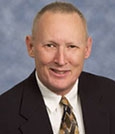 Professor Shadish edited a special issue of the Journal of School Psychology, Analysis and meta-analysis of single-case designs (Issue 52, Volume 2). Shadish also contributed three articles to this special issue 1) Analysis and meta-analysis of single-case designs: An introduction; 2) Analysis and meta-analysis of single-case designs with a standardized mean difference statistic: A primer and applications; and, 3) Using generalized additive (mixed) models to analyze single case designs.
Professor Shadish edited a special issue of the Journal of School Psychology, Analysis and meta-analysis of single-case designs (Issue 52, Volume 2). Shadish also contributed three articles to this special issue 1) Analysis and meta-analysis of single-case designs: An introduction; 2) Analysis and meta-analysis of single-case designs with a standardized mean difference statistic: A primer and applications; and, 3) Using generalized additive (mixed) models to analyze single case designs.
Political Science
Thomas Hansford
 Professor Hansford and Professor Sarah Depaoli received a National Science Foundation grant for “Estimating the Locations of Interests, Governments, and Justices in Legal Policy Space.” The National Science Foundation funds research and education in most fields of science and engineering. It does this through grants, and cooperative agreements to more than 2,000 colleges, universities, K-12 school systems, businesses, informal science organizations and other research organizations throughout the United States. The foundation accounts for about one-fourth of federal support to academic institutions for basic research.
Professor Hansford and Professor Sarah Depaoli received a National Science Foundation grant for “Estimating the Locations of Interests, Governments, and Justices in Legal Policy Space.” The National Science Foundation funds research and education in most fields of science and engineering. It does this through grants, and cooperative agreements to more than 2,000 colleges, universities, K-12 school systems, businesses, informal science organizations and other research organizations throughout the United States. The foundation accounts for about one-fourth of federal support to academic institutions for basic research.
Sociology
Zulema Valdez
 Professor Valdez received funding from the American Sociological Association/National Science Foundation Fund for the Advancement of the Discipline Grant for her research, "The Effects of Legal Status on the Social and Economic Incorporation of Mexican-Origin Mixed Status Families in the Southwest." The Fund for the Advancement of the Discipline (FAD) is supported by the American Sociological Association through a matching grant from the National Science Foundation. The goal of the program is to nurture the development of scientific knowledge by funding small, groundbreaking research initiatives and other important scientific research activities such as conferences. FAD awards provide scholars with “seed money" for innovative research that has the potential for challenging the discipline, stimulating new lines of research, and creating new networks of scientific collaboration. An award is intended to provide opportunities for substantive and methodological breakthroughs, broaden the dissemination of scientific knowledge, and provide leverage for acquisition of additional research funds.
Professor Valdez received funding from the American Sociological Association/National Science Foundation Fund for the Advancement of the Discipline Grant for her research, "The Effects of Legal Status on the Social and Economic Incorporation of Mexican-Origin Mixed Status Families in the Southwest." The Fund for the Advancement of the Discipline (FAD) is supported by the American Sociological Association through a matching grant from the National Science Foundation. The goal of the program is to nurture the development of scientific knowledge by funding small, groundbreaking research initiatives and other important scientific research activities such as conferences. FAD awards provide scholars with “seed money" for innovative research that has the potential for challenging the discipline, stimulating new lines of research, and creating new networks of scientific collaboration. An award is intended to provide opportunities for substantive and methodological breakthroughs, broaden the dissemination of scientific knowledge, and provide leverage for acquisition of additional research funds.
This summer, Professor Valdez will hire a UC Merced SSHA graduate student with Spanish language skills to conduct focus groups on the strategies employed by Mexican-origin mixed status families to live, attend school, and work. "Mixed Status" families are those in which parent(s) and/or child(ren) have legal and unauthorized status in the same household. Also, this summer, she will be visiting Texas where she is working on a project that investigates the informal economy of unauthorized Mexican Immigrants living on the US-side of the South Texas-Mexico Border.
Nella Van Dyke
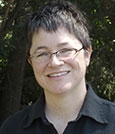 In March, Professor Van Dyke had a book published, "Understanding the Tea Party Movement." Book summary: Hailing themselves as heirs to the American Revolution, the Tea Party Movement staged tax day protests in over 750 U.S. cities in April 2009, quickly establishing a large and volatile social movement. Tea Partiers protested at Town Hall meetings about health care across the country in August, leading to a large national demonstration in Washington on September 12, 2009. The movement spurred the formation (or redefinition) of several national organizations and many more local groups, and emerged as a strong force within the Republican Party. Self-described Tea Party candidates won victories in the November 2010 elections. Even as activists demonstrated their strength and entered government, the future of the movement's influence, and even its ultimate goals, are very much in doubt. In 2012, Barack Obama, the movement's prime target, won re-election decisively, Congressional Republicans were unable to govern, and the Republican Party publicly wrestled with how to manage the insurgency within. Although there is a long history of conservative movements in America, the library of social movement studies leans heavily to the left. The Tea Party Movement, its sudden emergence and its uncertain fate, provides a challenge to mainstream American politics. It also challenges scholars of social movements to reconcile this new movement with existing knowledge about social movements in America. Understanding the Tea Party Movement addresses these challenges by explaining why and how the movement emerged when it did, how it relates to earlier eruptions of conservative populism, and by raising critical questions about the movement's ultimate fate.
In March, Professor Van Dyke had a book published, "Understanding the Tea Party Movement." Book summary: Hailing themselves as heirs to the American Revolution, the Tea Party Movement staged tax day protests in over 750 U.S. cities in April 2009, quickly establishing a large and volatile social movement. Tea Partiers protested at Town Hall meetings about health care across the country in August, leading to a large national demonstration in Washington on September 12, 2009. The movement spurred the formation (or redefinition) of several national organizations and many more local groups, and emerged as a strong force within the Republican Party. Self-described Tea Party candidates won victories in the November 2010 elections. Even as activists demonstrated their strength and entered government, the future of the movement's influence, and even its ultimate goals, are very much in doubt. In 2012, Barack Obama, the movement's prime target, won re-election decisively, Congressional Republicans were unable to govern, and the Republican Party publicly wrestled with how to manage the insurgency within. Although there is a long history of conservative movements in America, the library of social movement studies leans heavily to the left. The Tea Party Movement, its sudden emergence and its uncertain fate, provides a challenge to mainstream American politics. It also challenges scholars of social movements to reconcile this new movement with existing knowledge about social movements in America. Understanding the Tea Party Movement addresses these challenges by explaining why and how the movement emerged when it did, how it relates to earlier eruptions of conservative populism, and by raising critical questions about the movement's ultimate fate.
Economics
Alex Whalley
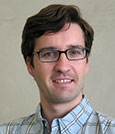 In March, Professor Whalley and Professor Shawn Kantor published a paper "Knowledge Spillovers from Research Universities: Evidence from Endowment Value Shocks" in the Review of Economics and Statistics. In this paper Whalley and Kantor showed the spillover effects from university activity, with local firms becoming more productive and paying higher wages when university spending increases. The economic benefits are significantly larger when universities are more research intensive or when firms are technologically closer to universities.
In March, Professor Whalley and Professor Shawn Kantor published a paper "Knowledge Spillovers from Research Universities: Evidence from Endowment Value Shocks" in the Review of Economics and Statistics. In this paper Whalley and Kantor showed the spillover effects from university activity, with local firms becoming more productive and paying higher wages when university spending increases. The economic benefits are significantly larger when universities are more research intensive or when firms are technologically closer to universities.
Professor Whalley is working on a project to measure the long-term economic effects of Space Race research conducted at the nations’ leading universities. Many credit the Space Race with generating the scientific breakthroughs needed to power post-war economic growth, but there has been little quantification of any effects. The results will be relevant for policymakers who seek to know more about how the economic payoffs of public funding for basic science, and the role of basic science in US economic leadership.



